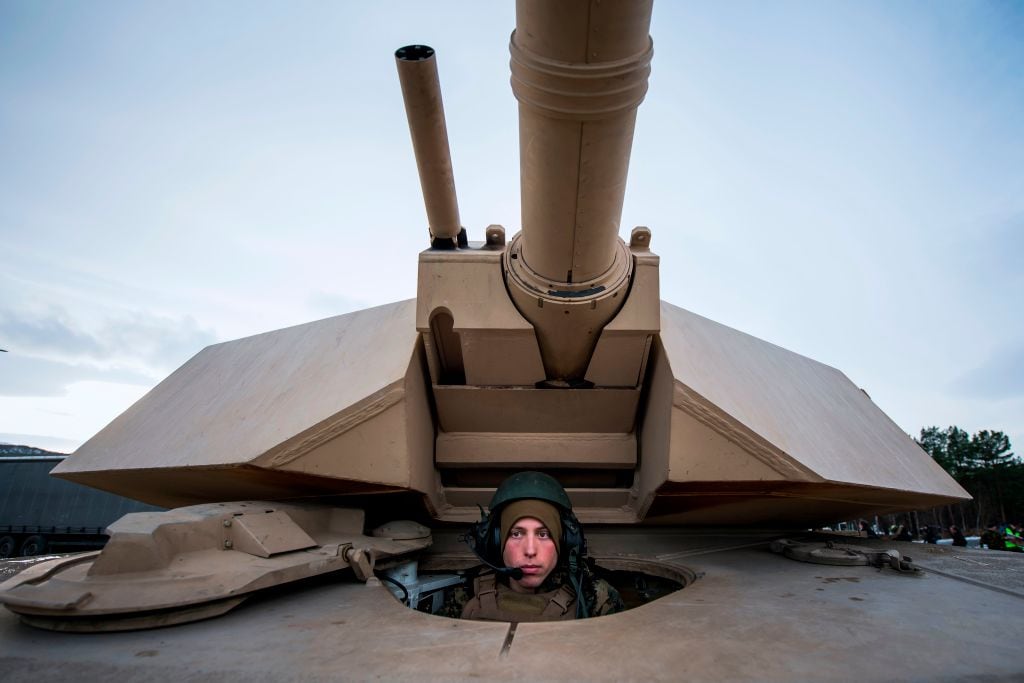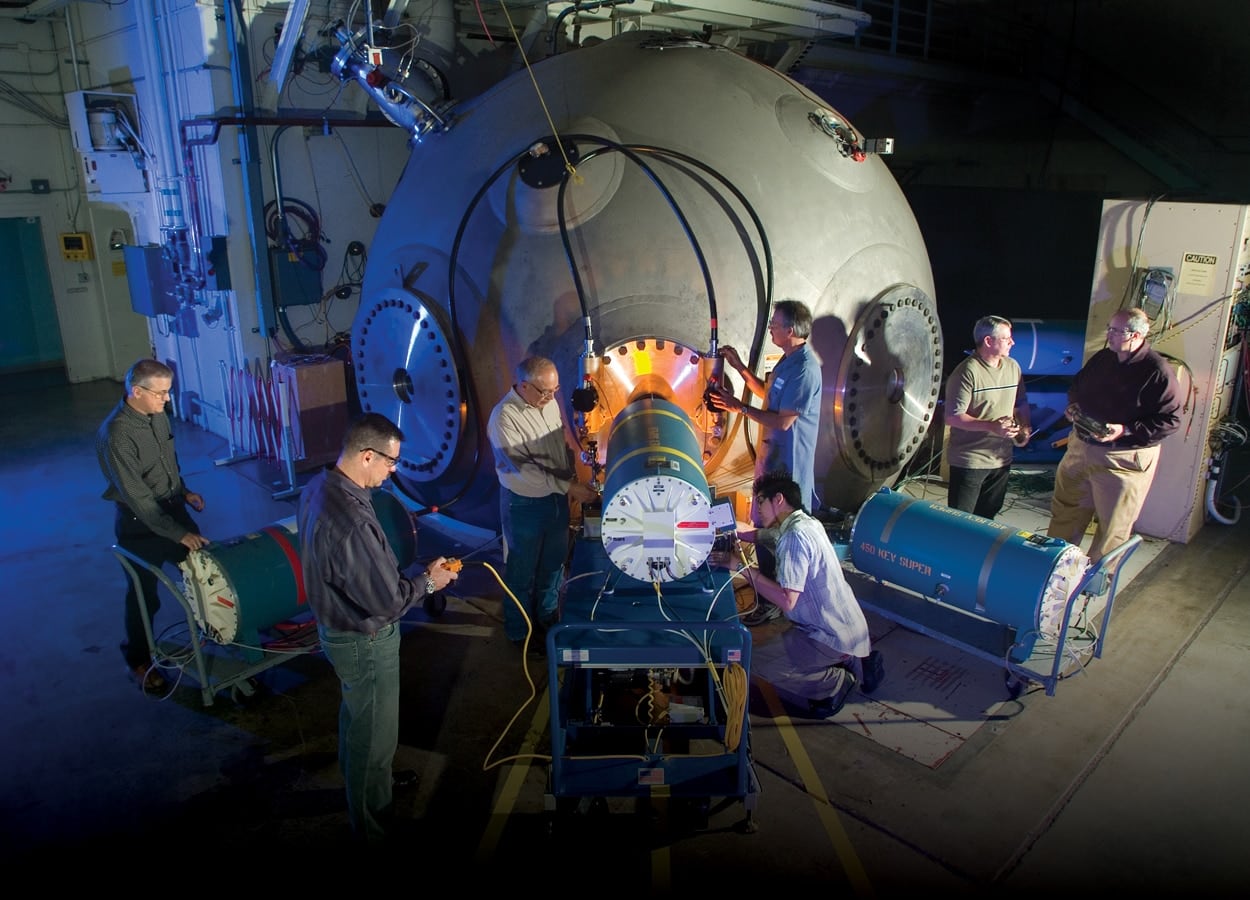WASHINGTON — Rep. Adam Smith — set to become the next chairman of the House Armed Services Committee in the new Congress — and other Democratic lawmakers said Wednesday they hope to use their party’s takeover of the House to check the Trump administration’s expansive policies toward nuclear weapons.
Speaking at an event sponsored by the Ploughshares Fund, an anti-nuclear weapons group, Smith said he wants to see a redo of the Trump administration’s Nuclear Posture Review, to continue multilateral nuclear pacts and to advance a no-first-use policy toward nuclear weapons for the United States.
Smith also reiterated he wants a ban on a new low-yield submarine-launched nuclear weapon, a version of the W76-1 warhead for the Navy’s Trident II D5 ballistic missile, dubbed the W76-2. He introduced a bill to that effect in September.
It’s a tall order. In the House, where Democrats have picked up 34 to 40 seats, Smith’s ambitious proposals are likelier to become part of the next annual defense policy bill. However, those proposals would have a rougher road in negotiations with the GOP-led Senate Armed Services Committee; on the Senate floor, where GOP holds a majority; and in the Oval Office, where President Donald Trump wields the veto pen.
“Fundamentally what I’m hoping what we can do moving forward is reset our policy on nuclear weapons,” said Smith, D-Wash., adding that it would be one of his top goals as chairman in the coming Congress.
Two Democrats and senior members of the Senate Foreign Relations Committee, Oregon Sen. Jeff Merkley and Massachusetts Sen. Ed Markey, expressed similar sentiments at Wednesday’s event.
RELATED

Ploughshares President Joe Cirincione was upbeat a week after Democrats won control of the House and hoped the organization could “test out new ideas” in the new Congress to introduce into the 2020 presidential elections. Cirincione condemned the emergence of “new Dr. Strangeloves” under the Trump administration, which has flirted with withdrawing from the Intermediate-Range Nuclear Forces Treaty and the New START Treaty.
For his part, Smith has promised to rein in nuclear spending and favors a more modest and sensible approach to nuclear weapons, as a credible deterrent and not as an overwhelming force designed to win a nuclear war.
But he also hoped to temper expectations for the room full of nonproliferation advocates. For one, he does not categorically oppose nuclear weapons.
“We need a different president. We could pass whatever legislation we want to pass, but executive power is enormous.” Smith said. “We need to exercise oversight, we need to put him in check as much as we can. But we shouldn’t kid ourselves about the reality.”
Asked the best way to negotiate to reduce nuclear weapons with a GOP-controlled SASC, Smith said he could argue the trade-offs with conventional weapons like ships and planes. "From a dollar standpoint, you cannot have both,” he said.
The U.S. will need to spend $1.2 trillion over the next 30 years to modernize and maintain its nuclear weapons, according to a 2017 Congressional Budget Office estimate.
Since then, the administration released its new Nuclear Posture Review, which called for a continuation of sustainment and modernization efforts within the Defense and Energy departments, while also proposing a range of programmatic changes to the nuclear weapons enterprise.
Among them, the administration has sought the W76-2 program, a nuclear-armed, sea-launched cruise missile, and to sustain the B83-1 bomb beyond its planned retirement date.
RELATED

The Republican chairmen of the House and Senate Armed Services committees — Rep. Mac Thornberry and Sen. Jim Inhofe, respectively — have been supportive of the Trump administration’s direction on nuclear weapons since the NPR was released in February.
The NPR, Thornberry said then, “assures that our deterrent will be taken seriously by our adversaries and allies alike, while keeping the total cost below 7 percent of what the Department of Defense spends to protect the country.”
On Wednesday, Markey said any withdrawal from the New START Treaty should be put to a Senate vote, as should any move to provide Saudi Arabia with plutonium and uranium. He also pledged to “fight tooth and nail” to defund the development and deployment of low-yield nuclear weapons.
“There is no such thing as a zero-calorie chocolate fudge sundae,” Markey said, “and there is no such thing as a low-yield nuclear weapon.”
Joe Gould was the senior Pentagon reporter for Defense News, covering the intersection of national security policy, politics and the defense industry. He had previously served as Congress reporter.




